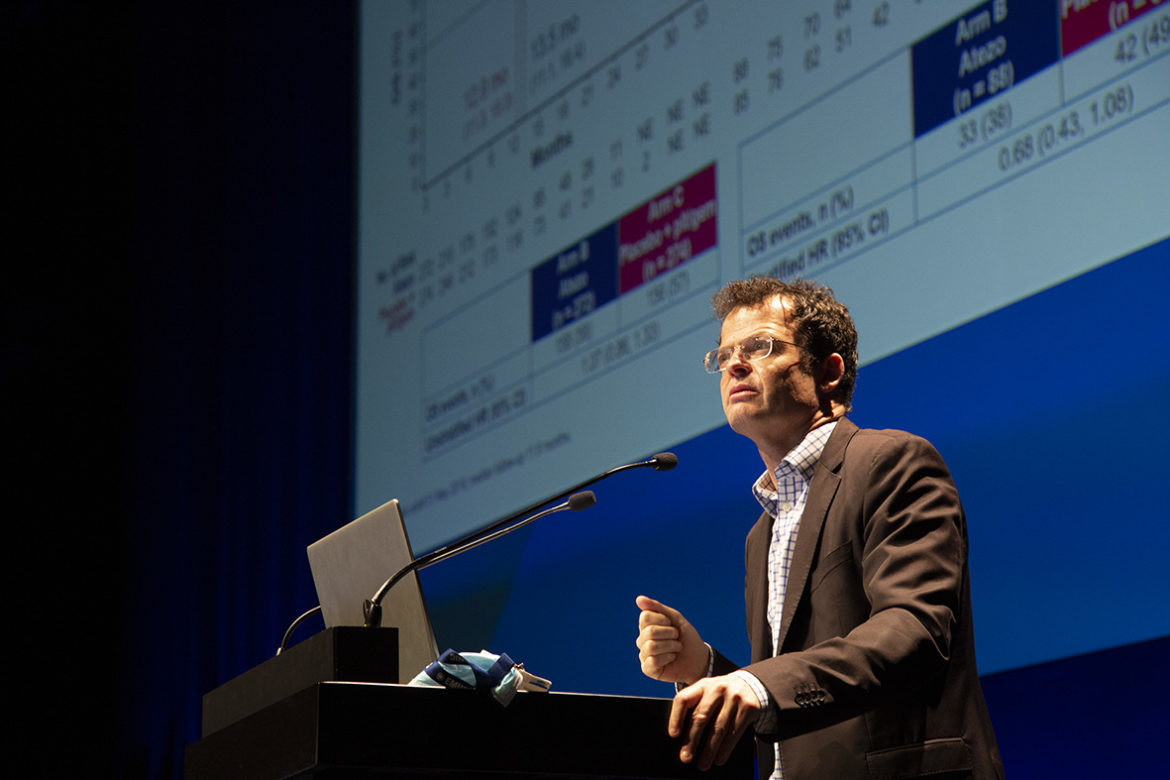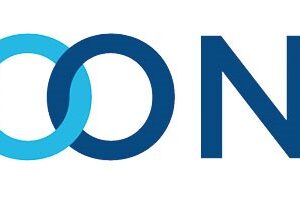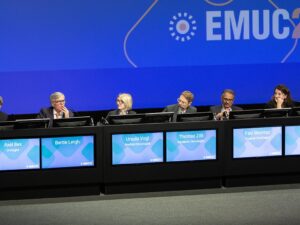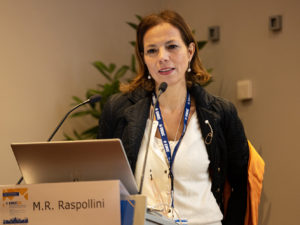Presenters of Plenary Session 5 kickstarted day three of EMUC21 and delivered developments on the trials NIMBUS, Focal Lesion Ablative Microboost in prostatE cancer (FLAME), IMvigor130, Extended vs limited Pelvic Lymph node dissection in prostate cancer, and CLEAR. Chairs urologist Dr. Marco Moschini (CH) and oncologist Prof. Dr. Gert De Meerleer (BE) spearheaded the session.
NIMBUS
During his presentation “NIMBUS trial – follow up”, speaker Prof. Dr. Marc-Oliver Grimm (DE) provided the trial’s findings. He stated that in high-grade non-muscle-invasive bladder cancer (NMIBC), a reduced frequency of Bacillus Calmette-Guerin (BCG) instillations during induction and maintenance is inferior to the standard BCG schedule regarding time-to-first-recurrence. Particularly, more early recurrences occurred in the experimental arm suggesting inferior efficacy of the reduced-frequency BCG induction schedule.
According to Prof. Grimm, fewer patients were affected with fewer adverse events (AEs) in the reduced frequency arm. He added that NIMBUS is the first prospective trial using routine repeat transurethral resection (reTUR) prior to BCG induction, which was performed in 90% of the patients. The low recurrence and progression rate in the standard frequency arm in a high-grade NMIBC population with an estimated recurrence rate of 21% after three years, and a progression rate of 3.8% at first recurrence may be attributed to the routine use of reTUR.
Further exploring the topic, Prof. Dr. Axel Merseburger (DE) shared points of discussion such as how to identify early recurrent patients; he mentioned biomarkers, which had been discussed during the congress yesterday. If alterations are there, he stated to opt for IO/fibroblast growth factor receptor (FGFR) treatment. In addition, Prof. Merseburger inquired if fewer AEs in the reduced frequency arm are clinically meaningful.
He concluded, “My biggest take-home message from the NIMBUS trial is to use routine reTUR prior to BCG induction and ask a pathologist to see the muscle in the specimen.”
FLAME
Launching the presentations on the FLAME trial, oncologist Dr. Linda Kerkmeijer (NL) stated, “The FLAME trial is the first randomised trial to show that isotoxic focal radiotherapy boosting works. A five-year biochemical disease-free survival (bDFS) of 92% was achieved in mainly high-risk prostate cancer population. The focal boost had no impact on toxicity or quality of life. In addition, the radiotherapy was performed with conventional techniques and at no additional costs.”
In a complementary lecture, discussant radiotherapist Dr. Bradley Pieters (NL) focused on androgen deprivation therapy (ADT), which was used in the study, and on the duration of treatment. He stated, “There will still be discussions with regard to the need for and duration of ADT in very-high-dose-escalated radiotherapy. It’s something to explore further in the future. Another topic that will be investigated is the possibility of safely reducing treatment time and still provide very high doses through Stereotactic body radiation therapy (SBRT), brachytherapy or both.”
IMvigor130
Speaker oncologist Prof. Dr. Aristotelis Bamias (GR) shared some of the key points of the IMvigor130 trial. He stated, “The trial produces valuable information on the role of checkpoint inhibitors (CPIs) in the modern treatment paradigm in advanced urothelial cancer (aUC). Progression-free survival (PFS) is significantly prolonged by the addition of atezolizumab to first-line, platinum-based chemotherapy.”
He added that the current label of atezolizumab monotherapy in first-line treatment is justified and that the role of platinum compound in the context of immunotherapy needs to be further studied. “The evolving results of IMvigor 130 need to be viewed in the context of rapid changes in the treatment paradigm of aUC,” Prof. Bamias concluded.
Discover what oncologist Prof. Dr. Thomas Powles (GB) shared about the IMvigor130 trial, as well as, the full presentations today on the NIMBUS, FLAME, and IMvigor130 trials in the Resource Centre. You can also access vital updates from the CLEAR and Extended vs limited Pelvic Lymph node dissection in prostate cancer trials in the Resource Centre.





